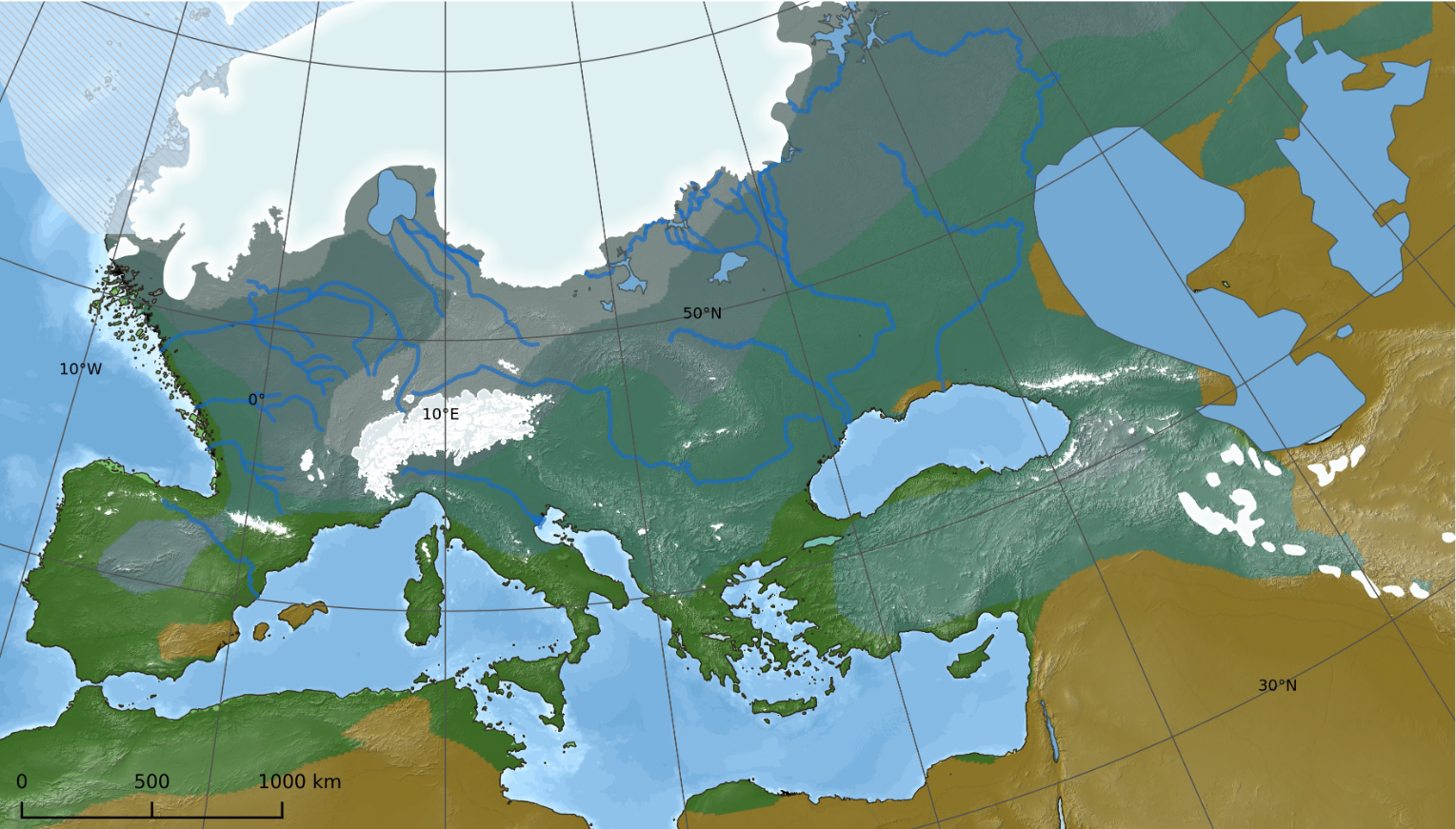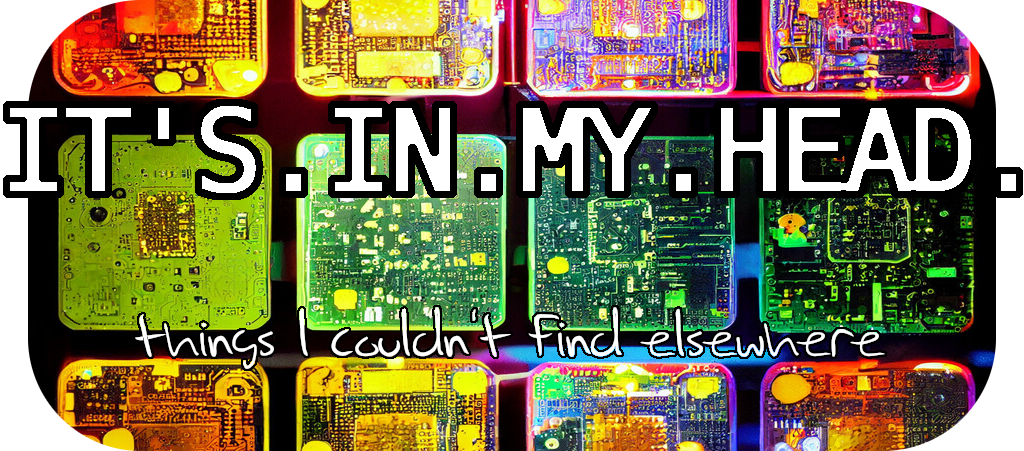The end of our warm interglacial
“Evidence is increasing, therefore, that a rapid reorganisation of atmospheric and ocean circulation (time-scales of several decades or more) can occur during inter-glacial periods without human interference.”
from IPCC TAR - Working Group I: The Scientific Basis

Image licensed under CC-BY: Becker, D., Verheul, J., Zickel, M., Willmes, C. (2015): LGM paleoenvironment of Europe - Map. CRC806-Database, DOI: 10.5880/SFB806.15
A lot has been said about why our current ice age (yes, we live in an ice age) has warmer periods roughly every 100000 years called interglacials . It seems quite certain that Milankovitch cycles are the main cause, but it’s less clear exactly what and why causes the sudden warming and sudden cooling seen at the start and end of them.
This post speculates in that we’re currently seeing the interglacial we live in, the Holocene, coming to an end. The main reason for that speculation is that it indeed seems as if the Gulf Stream is weakening , together with the hypothesis that the glacial-interglacial dance is self-bi-stabilizing .
Milankovitch cycles are responsible for the glacial stage to thaw into an interglacial - known as a termination event . One of the possible feedback loops here might be greenhouse gasses, although likely the more stronger Methane rather than CO2. It’s a bit less clear what ends the interglacial, it’s difficult to explain only due to less insolation from the Milankovitch cycles.
But one possible scenario is simply that as the interglacial progresses, more and more of the northernmost (and southernmost, but likely of less importance) parts thaws/melts, the AMOC - the Gulf stream current - is affected. Possibly from the ice on Greenland melting, lowering the salinity and thus the strength of the deep convection return current .
As northern Europe gets colder, the ice then starts advancing again, reflecting more and more of the incoming solar radiation and taking us back into deep glaciation.
Is it our fault?
Indeed it might very well be. The warming caused by our emissions would then have changed the timing of when our interglacial ends compared to what would have happened naturally.
What can we do about it?
Likely nothing. We (humanity) were always going to come up to the point where our interglacial ends and we need to get 195 countries to agree on sharing the parts around the equator where we’ll still be able to live and grow food.
… oh.
